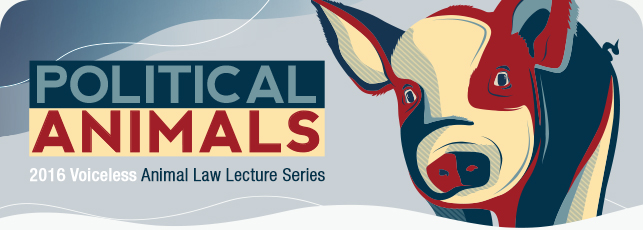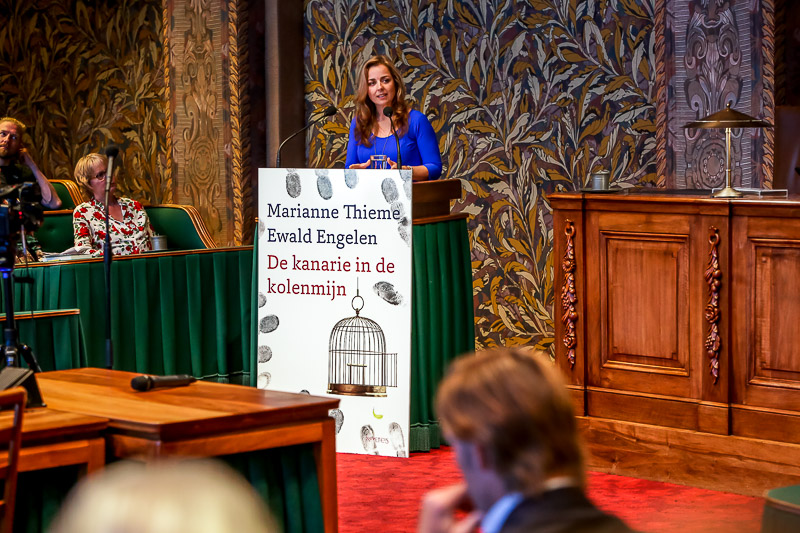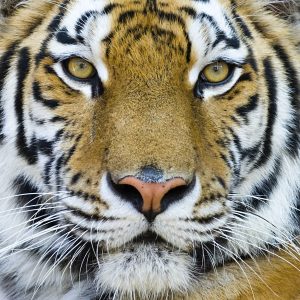Worldlog 9 Mai 2016
Je vous écris ce Worldlog de l’Australie. À l’invitation de l’organisation australienne pour les droits des animaux, Voiceless, je mène une série de conférences en Australie du 4 au 17 mai. Pendant dix conférences dans diverses universités et dans un cabinet d’avocats, je parle de mon rôle dans la stimulation du débat sur les droits des animaux et de l’importance politique de ce rôle motrice. Je trouve ça super que Voiceless m’accorde cette opportunité fantastique. Ma visite ne se passe d’ailleurs certainement pas inaperçue ici en Australie. Presque 1700 personnes se sont enregistrées pour assister à ma conférence et, à la suite de ma tournée de conférences, The Sydney Morning Herald a publié cet article.

Mon nouveau livre ‘Le Canari dans la Mine de Charbon’ est maintenant également disponible en version anglaise comme un e-book! J’ai écrit ce livre en coopération avec le géographe financier Ewald Engelen. Nous mettons les lecteurs en garde contre la situation intenable des choix politiques et financiers actuels. Et voilà pourquoi nous préconisons un changement radical. Ewald, à partir de la perspective économique et moi-même, à partir du point de vue écologique. Temps pour le plan B!
Le 21 avril a eu lieu le lancement festif de ‘Le Canari dans la Mine de Charbon’ au Sénat. Vous pouvez regarder ici les photos de la présentation du livre. Le livre n’était même pas deux semaines dans les magasins aux Pays-Bas et il y avait déjà besoin d’une 2ème édition. Ça fait du bien de savoir que tant de gens s’intéressent à notre message!
La version anglaise est disponible comme un e-book via les magasins online néerlandais, via Amazon.com, Amazon.co.uk et, dès la semaine prochaine, via Amazon.com.au.

Pour terminer, j’ai encore une nouvelle de dernière heure: grâce à une motion que j’ai déposée, les trophées de chasse de 200 espèces d’animaux sauvages ne peuvent plus être importés aux Pays-Bas. Cela signifie qu’entre autres l’ivoire, les peaux de tigre et le corne du rhinocéros sont retenus, avec effet immédiat, à la frontière néerlandaise. Les chasseurs paient beaucoup d’argent pour les voyages de chasse sur des éléphants, des lions et d’autres espèces en voie de disparition. Grâce à cette nouvelle interdiction d’importation, les chasseurs néerlandais ne peuvent plus faire étalage chez eux à la maison des animaux sauvages qu’ils ont tués en dehors de l’Europe. Espérons que cette mesure aidera à supprimer une incitation majeure à utiliser la nature à l’étranger comme stand de tir.

Bien à vous,
Marianne
I am writing this Worldlog from Australia. At the invitation of the Australian animal rights organisation Voiceless I am giving a series of lectures in Australia between the 4th and 17th of May. I will give 10 lectures at different universities and a law firm explaining the role of the booster in the animal rights debate, and of course also the political meaning of this booster role. I think it is great that Voiceless has given me this opportunity. And my tour around Australia is certainly not going unnoticed here. Almost 1,700 people have registered to attend my lecture and the Sydney Morning Herald has published the following article relating to my lecture tour.

My new book The Canary in the Coal Mine is now available as an English e-book! I wrote this book together with Ewald Engelen, professor of Financial Geography. We warn against the unsustainability of today’s politics and financial choices. And that is why we advocate a radical change of direction. Ewald from an economic perspective and me from an ecological standpoint. Time for plan B!
On the 21st of April last, we celebrated the launch of The Canary in the Coal Mine in the Senate. Pictures of the book presentation can be viewed here. After just two weeks of the book being for sale a second edition was required already. It is great to see that so many people are interested in our message!
The English e-book version can be ordered from Dutch webshops and via Amazon.com, Amazon.co.uk, and as from next week on Amaxon.com.au.

And last I have some breaking news: thanks to a motion I submitted it is no longer allowed to import hunting trophies of 200 wild animals into the Netherlands. This means that as from now, ivory, tiger skins and rhino horns are rejected at Dutch borders. Hunters pay a great deal of money for trips to hunt elephants, lions and other threatened animal species. Thanks to the new import ban, Dutch hunters can no longer show off the wild species they have shot outside of Europe. Hopefully this will take away the key incentive to use foreign nature as a shooting gallery.

Kind regards,
Marianne